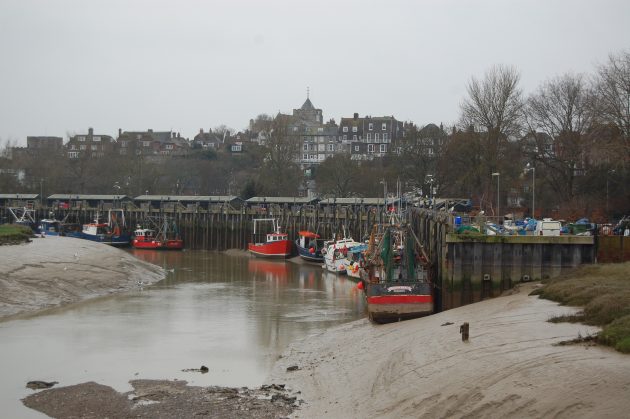Bottom-towed fishing gear is now illegal within certain specified areas around the Sussex coast, following the signing off of the nearshore trawling byelaw of Sussex Inshore Fisheries and Conservation Authority (IFCA). Rye News first reported on the consultation process in June 2018 when a local presentation and consultation was held by IFCA.
It noted that each year, the conservation byelaws of the nearshore fisheries have to be reviewed and this was a part of that process. At that time, an officer of IFCA said that:
“Sussex IFCA is proposing to review the existing mobile gear bye-law and manage near shore trawling fisheries on a zonal basis.
“We have divided up the district according to its geographical nature and the proposed management will be to exclude trawling fishing activities from nearshore areas in order to protect valuable sensitive habitats. The exclusion boundaries will be decided for each zone to reflect the habitat distribution and needs of the habitats.
Protecting sensitive habitats
“Specifically the objectives are to protect sensitive habitats which the fish utilise for breeding and nursery ground life stages, and to balance the exploitation of resources by netting, mobile gear (trawl) fisheries, and recreational sea anglers.”
In the intervening period, the byelaw was developed and signed off locally 15 months ago and then passed to the Marine Management Organisation and Defra, finally being signed off by the Secretary of State.
The byelaw itself states that: “Sussex seas are now better protected for generations to come thanks to new progressive management of trawling.
“The new management measures are intended to help safeguard the habitats that ensure sustainable inshore fisheries into the future”.

The Sussex Wildlife Trust has now released an article by Tor Lawrence, the Chief Executive, publicising the new inshore trawling byelaw. Their interest lies in particular in the decline of the kelp forest, and Tor Lawrence notes that “We know that kelp is just hanging on in small patches in this area” (specifically West Sussex Nearshore waters).
“We are determined to enable the kelp forest to restore and recover across this huge area of Sussex coast”
To read the post of Tor Lawrence dated March 22, 2021, go to Turning the tide.
To read more about the Help our Kelp partnership (see picture above), click here
The byelaw itself can be seen here.
Rye News hopes to be able to have an article from local fishermen on the effects of this new byelaw in next week’s edition.
Sources: Sussex Wildlife Trust, IFCA
Image Credits: Rye News library .




The Sussex Wildlife Trust had a free online talk this week on this subject, you can view it on their YouTube channel https://youtu.be/zXnu4bCeVcQ
A better link to Turning the Tide would be https://sussexwildlifetrust.org.uk/news/turning-the-tide
Please note that Tor Lawrence is not a Mr. – see https://sussexwildlifetrust.org.uk/our-story/staff-and-trustees
The Byelaw can be read here https://secure.toolkitfiles.co.uk/clients/34087/sitedata/files/Byelaw_docs/Nearshore-Trawling-Byelaw.pdf
So the exclusion limit applies as far East as Rye Harbour – is that the river mouth? The 1km is presumably measured from Mean High Water?
Is it me?
As a child meandering along parts of the south coast on holidays(dad couldn’t afford much) I was always fascinated looking in rock pools at the abundance of marine life. However finding any life say around Winchelsea towards Hastings (looks like there should be life) crabs etc is not easy. Is this new initiative designed to reverse the drop off in shore life? If so it’s most welcome.